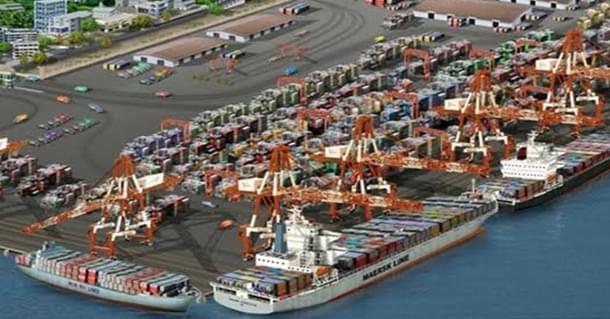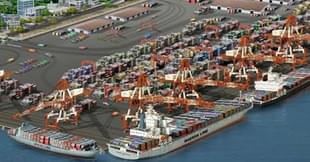News Brief
Major Port Authorities Bill Passed, Paves The Way For Greater Autonomy And Investments
Arun Kumar Das
Feb 12, 2021, 12:26 PM | Updated 12:26 PM IST
Save & read from anywhere!
Bookmark stories for easy access on any device or the Swarajya app.


Major ports will be provided autonomy in determining tariffs, port-related services and partnerships with private developers, with Parliament passing the Major Ports Authority Bill, 2020.
Minister of State for Ports, Shipping and Waterways Mansukh Mandaviya said the move was aimed at strengthening major state-run ports’ decision-making powers.
The bill is now awaiting the President’s assent.
The act will release the ports from the control of the previously centralised tariff regulatory body, TAMP (Tariff Authority for Major Ports) that made them less competent against new private ports.
The new act will now help ports to compete in evolving market conditions.
TAMP’s tight regulatory norms also hindered the ports from creating fixed assets and cutting logistics and port operation costs.
Major Port Authorities Act 2020 supersedes Major Port Trusts Act 1963.
The number of sections in the new act has been reduced to 76 from the previous 134, simplifying the governance, eliminating verbosity and obsolete sections.
Under the new act, Board of Port Authority will consist of 11 to 13 members, against 19 previously, representing all stakeholders and various interests.
Provisions are also made to include members from state governments in which the ports are located.
The Boards of Port Authority are free to enter into contracts, PPP projects, regulate tariffs based on market conditions. They can also prepare master plans for infrastructure development.
The bill also has room for corporate social responsibility projects and development of infrastructure activities by port authorities.
It attempts to remove red tape to make major state-owned ports more competitive in the changing market conditions.
This article was first published on India InfraHub.
Arun Kumar Das is a senior journalist covering railways. He can be contacted at akdas2005@gmail.com.





